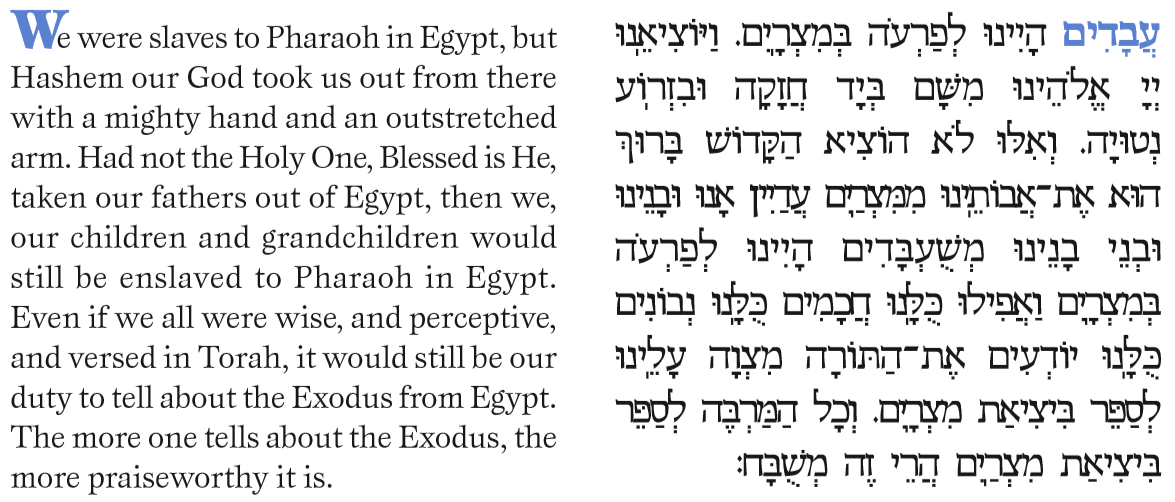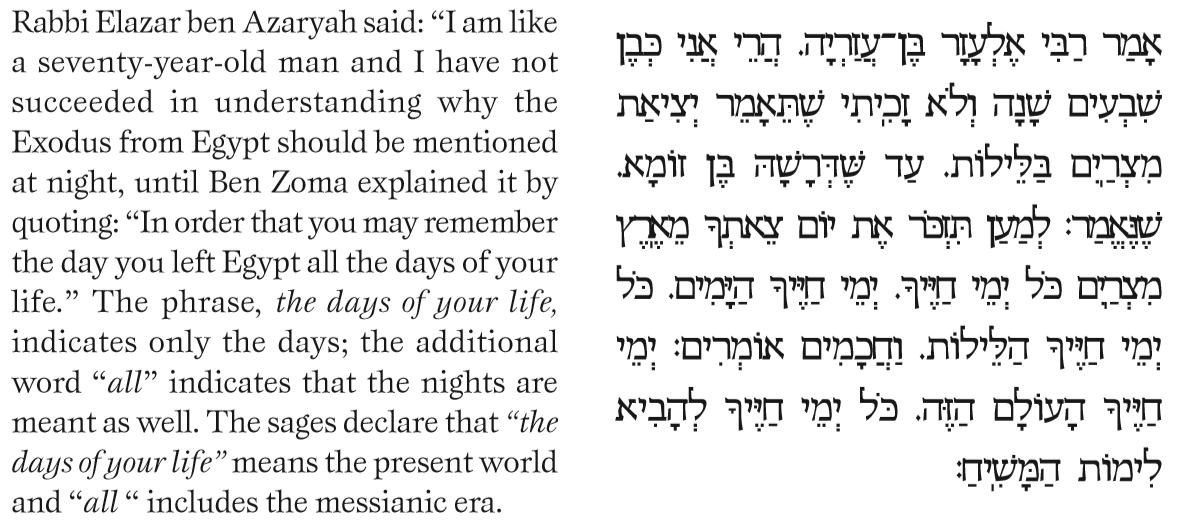Chapter 25: We Were Slaves



Showing Our Appreciation
וכל המרבה לספר ביציאת מצרים הרי זה משובח
“The more one tells about the Exodus, the more praiseworthy it is.” “Lecha Dumi’ah Tehilah” – “For You, silence is the highest praise” – Why, then, do we discuss Yetziat Mitzrayim at length? The Haggadah urges us to elaborate as much as possible in our discussion of the wonders that occured in Egypt. Obviously, though, one can never even begin to give a complete account of God’s miracles. The Maharal of Prague explains that despite our inability to capture the full gamut of the Almighty’s power, nevertheless, doing what we can constitutes fulfilling a critical obligation on our part, that of “hakarat hatov,” the gratitude we owe the Master of the Universe. Our praise for Hashem is necessary insofar as it reinforces in our mindset how much we are indebted to Hashem for the ongoing kindness He showers upon us. Unquestionably, appreciation and gratitude comprise a central focus in our service of God. Recognition of one’s infinite debt to his Creator, and a profound sense of appreciation and gratitude, lead one to serve Hashem with a greater level of fear and love. Therefore, whoever elaborates in his discussion of the Exodus “is deserving of praise.”The critical importance of gratitude forms the basis of the prohibition against marrying those from Amon and Moav. The Torah prohibits their acceptance into our nation since they did not offer Bnei Yisrael provisions upon their leaving Egypt. Bnei Yisrael’s ancestor, Avraham, saved the life of Lot, the ancestor of Amon and Moav. Lot’s descendants, however, failed to show any form of appreciation and neglected to offer the descendants of Avraham even their basic necessities as they embarked on their journey through the wilderness. Since, as explained, gratitude constitutes a fundamental precept in the service of Hashem, the neglectful attitude of Amon and Moav demonstrated their inability to truly serve the Almighty and, as a result, they may never join Bnei Yisrael. (Lev Eliyahu) Furthermore, King Hizkiyahu’s failure to express gratitude resulted in his forfeiting his chance at being the Mashiah. The Gemara in Sanhedrin (94a) states that Hashem was prepared to make Hizkiyahu the Mashiah. The Attribute of Justice objected since Hizkiyahu failed to sing praises to the Almighty, despite the many wonders which he experienced firsthand. Thus, failure to appreciate and recognize the great wonders of the Almighty delays the coming of Mashiah. Conversely, one who properly expresses gratitude towards Hashem helps bring about the Messianic Era. Perhaps this is what is meant when the Hahamim write in the mishnah, in the context of “sippur Yetziat Mitzrayim”, “to bring the days of Mashiah.” Through telling the miracles of the Exodus, one reinforces his sense of gratitude towards God and thus brings about our ultimate redemption. This may also explain why the scholars saw fit to spend the entire night discussing Yetziat Mitzrayim. The more they spoke about the miracles of Hashem, the more they developed their sense of appreciation for all He does for us, and this will ultimately lead to our final redemption. (Haggadah Hazon Ovadiah)

